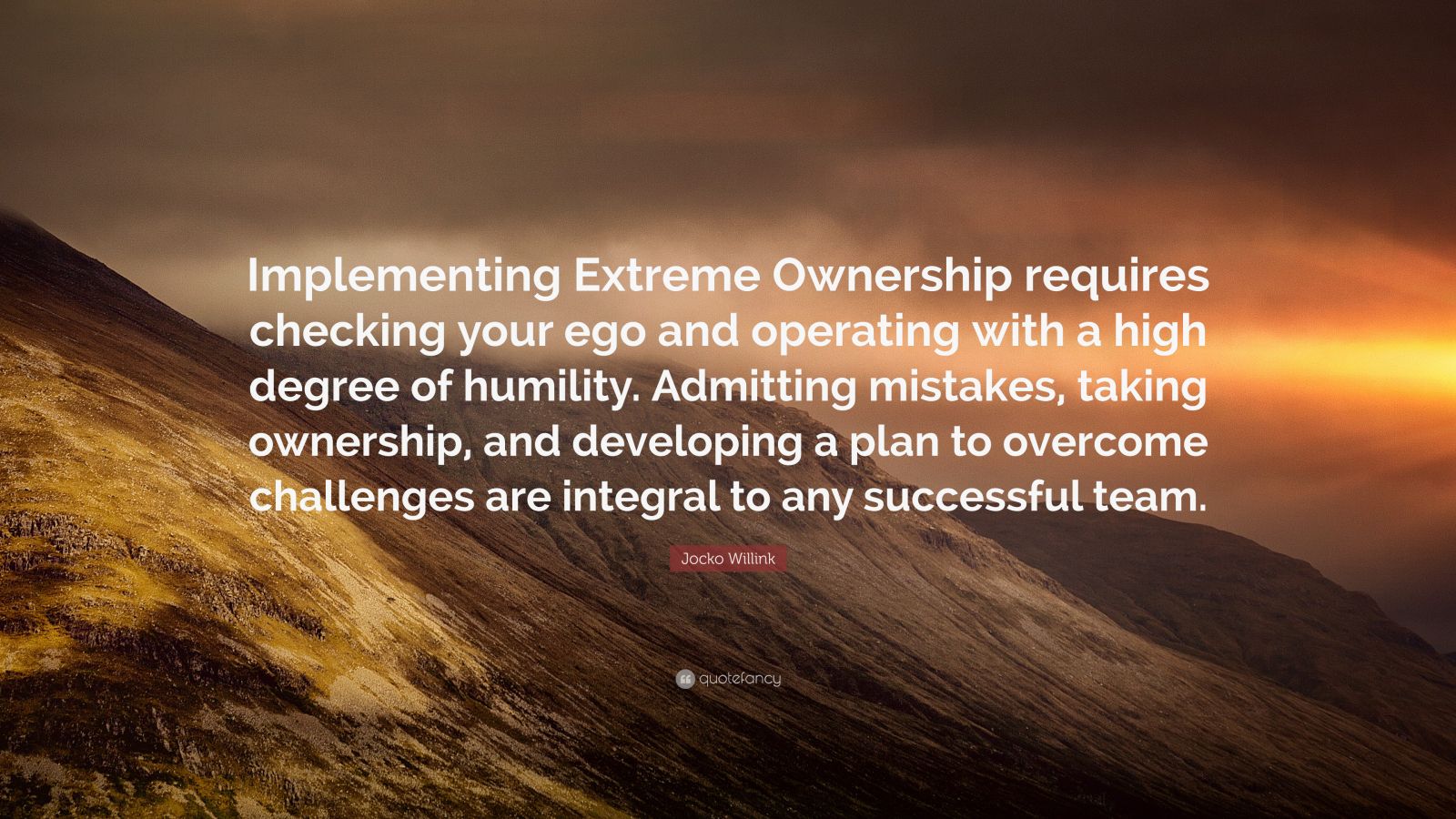




“There can be no leadership when there is no team.” – Jocko Willinkġ2. Senior leaders simply had the courage to accept and run with them.” – Jocko Willinkġ1. “Some of the boldest, most successful plans in history have not come from the senior ranks but from frontline leaders. “It is essential to develop a standardized planning process.” – Jocko Willinkġ0. “Human beings are generally not capable of managing more than six to ten people, particularly when things go sideways and inevitable contingencies arise.” – Jocko Willinkĩ. “Combat is reflective of life, only amplified and intensified.” – Jocko WillinkĨ. Therefore, leaders must enforce standards.” – Jocko Willinkħ. “When setting expectations, no matter what has been said or written, if substandard performance is accepted and no one is held accountable - if there are no consequences - that poor performance becomes the new standard. military, much like militaries throughout history, are based around building blocks of four-to-six man teams with a leader.” – Jocko WillinkĦ. “Overconfidence was risky in such a hostile environment, a mistake most often made by warriors who had never truly been tested.” – Jocko Willinkĥ. Decentralized Command is a key component to victory.” – Jocko WillinkĤ. “In chaotic, dynamic, and rapidly changing environments, leaders at all levels must be empowered to make decisions. They must have nothing to prove, but everything to prove.” – Jocko Willinkģ. A leader must exercise ‘extreme ownership’, but employ ‘decentralized command’. They must be close to subordinates, but not too close. A leader must be humble, but not passive. “A leader must be attentitive to details, but not obssessed with them. They must have a competitive spirit, but be a gracious loser.” – Jocko WillinkĢ. A leader must be brave, but not foolhardy. They must be aggressive, but not overbearing. “A leader must lead, but also be ready to follow.


 0 kommentar(er)
0 kommentar(er)
